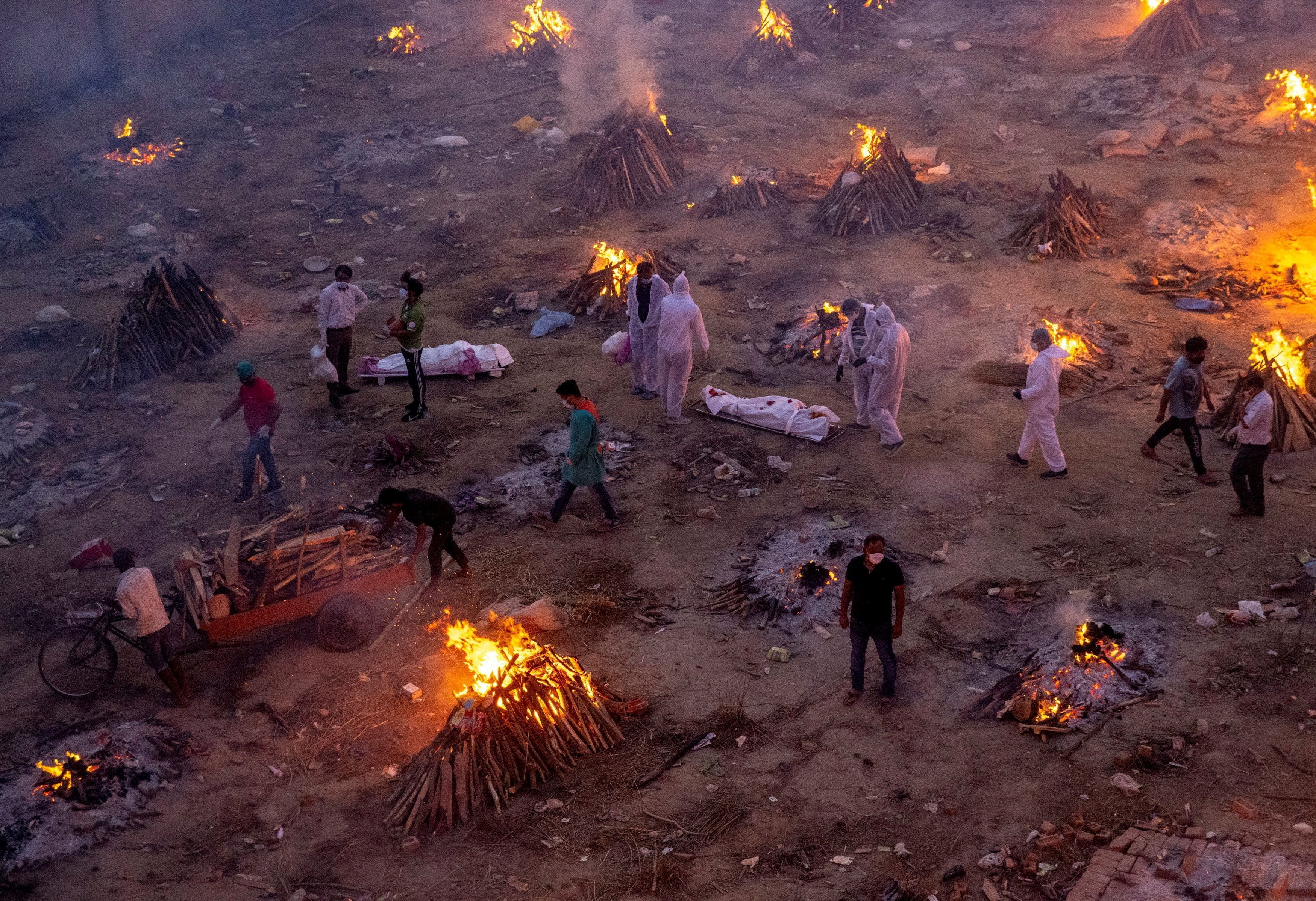Danish Siddiqui: Slain Reuters photojournalist wins posthumous second Pulitzer
Late journalist awarded second Pulitzer Prize for capturing India’s Covid devastation
Your support helps us to tell the story
From reproductive rights to climate change to Big Tech, The Independent is on the ground when the story is developing. Whether it's investigating the financials of Elon Musk's pro-Trump PAC or producing our latest documentary, 'The A Word', which shines a light on the American women fighting for reproductive rights, we know how important it is to parse out the facts from the messaging.
At such a critical moment in US history, we need reporters on the ground. Your donation allows us to keep sending journalists to speak to both sides of the story.
The Independent is trusted by Americans across the entire political spectrum. And unlike many other quality news outlets, we choose not to lock Americans out of our reporting and analysis with paywalls. We believe quality journalism should be available to everyone, paid for by those who can afford it.
Your support makes all the difference.The slain Reuters photojournalist Danish Siddiqui has been posthumously honoured with the 2022 Pulitzer Prize in the features photography category for his extensive coverage of India’s Covid-19 crisis.
Siddiqui, along with colleagues Sanna Irshad Mattoo, Amit Dave and Adnan Abidi from the Reuters news agency, were honoured with the prestigious award for “images of Covid’s toll in India that balanced intimacy and devastation, while offering viewers a heightened sense of place”.
Siddiqui was killed by the Taliban in July 2021 while accompanying the Afghan special forces on sorties in Kandahar, weeks before the country fell to the militant Islamist group.
According to the Pulitzer Prize website, the judges moved the Reuters team’s work from the breaking news photography category to the feature photography category.
Their photographs captured the horrors of the Delta wave of Covid that swept through India in April and May last year, overwhelming healthcare infrastructure and leaving ordinary people to try and acquire their own oxygen and other medical supplies on the black market.
The World Health Organisation estimates that millions of people in India have died with Covid over the course of the pandemic, amid shortages of hospital beds, oxygen and life-saving medicines. The exact number of deaths has come under question as the country’s government has contested the WHO’s figures.
This is the second time Siddiqui has won the Pulitzer. He was part of a Reuters team that was awarded the prize in 2018 for their coverage of the Rohingya crisis.
Born on 19 May 1983, Siddiqui became a journalist after studying for a Master’s degree in Mass Communication from Delhi’s Jamia Milia Islamia University.
He began his career as a broadcast news correspondent but switched to photojournalism and joined Reuters as an intern in 2010. He had extensively covered India, the pro-democracy protests in Hong Kong and conflicts in the Middle East.

His family has approached the International Criminal Court (ICC) to seek an investigation into the events surrounding his death. Siddiqui is believed to have been tortured before he was killed by Taliban fighters.
Communication filed at the ICC by lawyer Avi Singh on behalf of Siddiqui’s parents Shahida and Mohammad Akhtar Siddiqui alleged attack, torture and “unlawful killing” of the correspondent.
Siddiqui is survived by his wife Rike and two young children.
Speaking after the Pulitzer Prize winners were announced late on Monday, Siddiqui’s father told The Indian Express that despite the “most difficult circumstances”, his son “would share the pain and suffering of the people”.
“He faced all kinds of pressures from people who did not want the reality to be uncovered but he was unfazed by all kinds of criticism and was fearless,” Mohammad Akhtar Siddiqui said.
The New York Times was awarded the Pulitzer for national reporting for its work documenting how routine traffic stops ended in the deaths of hundreds of people.
The Washington Post received the prize in public service journalism for its coverage of the 6 January Capitol riot.
Journalists of war-torn Ukraine were honoured with a special citation hailing the “courage, endurance and commitment to truthful reporting” amid the Russian invasion.

Join our commenting forum
Join thought-provoking conversations, follow other Independent readers and see their replies
Comments